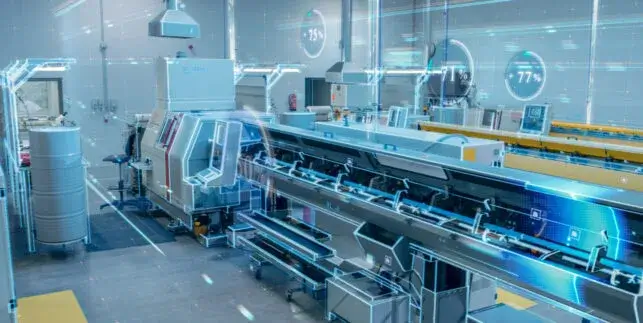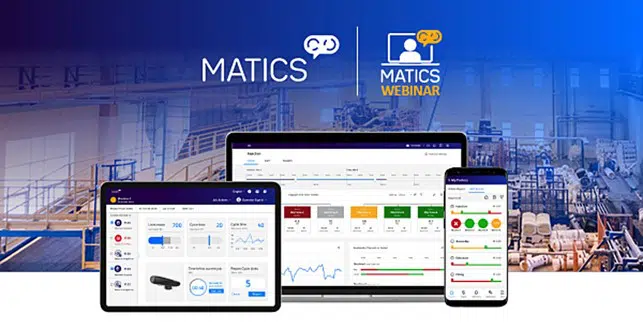Overcoming Challenges: Digital Transformation in Pharma Manufacturing

Pharmaceutical manufacturing is one of the largest sectors globally and among the most essential to modern society. However, it is an industry currently fraught with various challenges that manufacturers must grapple with. As global demand only continues to increase, pharmaceutical manufacturers need concrete solutions to these challenges today.
Reacting to Changing Demand
Pharmaceutical manufacturing is a sector where demand fluctuates significantly. The need for specific medications is continuously changing, both in terms of seasonal demand and entirely unanticipated ways. Manufacturers must ensure their operations are ready to pivot or scale as needed.
The spread of illness and disease, large-scale natural disasters, and other factors can lead to specific medications drastically increasing in demand at a moment’s notice. For many pharmaceutical manufacturing operations, this means that processes must be in place to allow for a transition to producing other products.
The emergence of new medications and products presents a considerable challenge as well. As organizations develop new medicines, achieving the best possible speed to market is critical. This also means a rapid transition for manufacturing operations, implementing new and unfamiliar formulations and processes.
Throughout such a transition, manufacturers need tools to ensure that production proceeds according to plan. In pharmaceutical manufacturing, even minor mistakes can have disastrous consequences. Manufacturers must ensure their production teams have clear instructions and the tools they need to manage production effectively.
Grappling With Labor Shortages
Ongoing labor shortages have hit many manufacturing sectors. Pharmaceutical manufacturing has seen particular challenges in this area due to the increased education and experience requirements in many of its skilled labor roles.
The stringent regulatory framework around pharmaceutical manufacturing and the nature of the processes involved call for a wide variety of skilled laborers. Technicians are required for highly specialized and precise equipment, and operators often need training on specific protocols for cleanroom manufacturing and other requirements not found in other sectors.
The combination of both the general labor shortage and the specific requirements of the pharmaceutical industry has many manufacturers failing to maintain an adequate workforce. This creates additional challenges throughout their operations as they struggle to meet demand while maintaining quality and safety standards.
Many recent efforts in the US and abroad have been focused on promoting a strong manufacturing workforce. However, the results of those programs are still years away. Pharmaceutical manufacturers need solutions today that can deliver the flexibility and performance they need to maintain operations with a reduced workforce.
Handling Recipe and Material Management
Like many other manufacturing sectors, pharmaceutical manufacturing involves the combination of raw materials in pre-determined amounts based on established recipes. However, some primary differences make material management a more challenging undertaking in pharmaceutical manufacturing.
Pharmaceuticals require exceptional accuracy and consistency in their compositions. While other industries might have some tolerance for minor deviations without any impact, any changes in pharmaceutical composition result in rejection or severe consequences if faulty production makes it past quality assurance.
Most pharmaceutical manufacturing processes rely on a combination of manual and automated weighing processes to handle raw material management. While some non-active ingredients may require lesser precision, the active ingredients in pharmaceuticals must be measured and verified against recipes with the highest level of precision.
Manufacturers must always ensure that actual raw material use in each batch is accurately recorded and monitored. Records must demonstrate that each batch matches the recipe to guarantee acceptable product quality and compliance with regulations.
Meeting Quality Assurance Standards
Pharmaceutical manufacturing faces some of the strictest quality assurance standards of any industry. Medications must meet stated active ingredient dosages within stringent thresholds while eliminating any potential sources of contamination. Ensuring these standards are met is a considerable undertaking in pharmaceutical manufacturing operations.
Comprehensive production data must be accurately recorded and maintained for all batches. This includes both routine testing procedures and various audits and inspections. To achieve this, manufacturers need a quality system that maintains records that are both accurate and validatable.
In practice, this presents a challenge when operations must pivot to manufacturing other products as demand changes. The specific suite of tests required varies widely among different medications, and quality assurance teams must ensure that all necessary testing is complete to verify quality and compliance.
Highly trained and specialized technicians carry out much of the quality assurance process. This makes the ongoing labor shortage even more acute in pharmaceutical manufacturing. Manufacturers must ensure quality and compliance, and that can prove to be a choke point in their operations.
Digitalization Solutions in Pharmaceutical Manufacturing
Digitalization provides a wide range of solutions for challenges throughout pharmaceutical manufacturing. Improving visibility, transparency, communication, and control can ensure that manufacturers can leverage their available resources to meet continuously shifting demand and maintain quality standards and compliance.
Achieving Agility in Operations
Digitalization can provide pharmaceutical manufacturers with the agility to face the challenge of shifting demand. The visibility and transparency achieved through digitalization let manufacturers always know what’s happening, limiting potential errors as new recipes and processes are introduced.
Improved recipe and raw material management can enhance accuracy in pharmaceutical manufacturing. The weight of specific raw materials is continuously monitored and compared against planned production. This lets manufacturers ensure that every batch meets their standards without relying on physical checklists or disparate systems.
Control over scheduling and set-up further enables transitions in production. Ongoing monitoring and analysis of production data can provide manufacturers with the insight they need to plan production efficiently and optimize set-up. Production team members can receive clear and accurate instructions tied to individual batches, ensuring that everyone is always on the same page.
Maintaining Accurate Records
Throughout pharmaceutical manufacturing processes, machines, sensors, systems, and production team members generate a wealth of production data. All of this data must be captured and recorded to maintain compliance and allow for audits and inspections as needed.
Manual data recording and management is a time-intensive task that keeps production team members from doing more important tasks. In an ongoing labor shortage, having skilled operators and technicians spend time recording values and shuffling them between systems is an unacceptable waste.
Instead, automated data aggregation within a centralized system can ensure complete data capture, improve accuracy, and eliminate human error. Data captured from various machines, systems, and workstations is recorded and accessible with the appropriate production context at any time.
Taking Action on Real-time Data
One of the most potent benefits of digitalization is the ability to manage operations in real time. The reliance on reconciliation and reports after the fact has always been a major challenge in manufacturing, as many production issues are only identified once the damage has been done. Manufacturers can prevent these losses by leveraging real-time production data.
Monitoring production in real-time makes it possible to intervene as processes are ongoing. This can drastically reduce the amount of rejected production, allowing production teams to resolve the issue before more time and raw materials are wasted. This can make all the difference when pressed with strict deadlines where manufacturers can’t afford to waste any production capacity.
Real-time production data enables more than simple alerts and notifications. Real-time analysis of that data can also provide predictive capabilities. Trends in quality metrics and other KPIs can be identified, and action taken to resolve problems before they cause any production losses. Those same tools can allow for fewer stops and less downtime with predictive maintenance.
Empower Production Teams to Do More
In pharmaceutical manufacturing, as in many other sectors, a manufacturer’s greatest asset is its workforce. A trained, experienced, and capable workforce makes all the difference when facing on-time delivery constraints and stringent quality requirements. Digitalization provides your team with the tools they need to do their jobs as effectively as possible.
The right digitalization solution can give your team the data and context they need to make the right decisions. Easy access to current and historical data in one system prevents important insights from falling through the cracks and ensures that everyone works with the most up-to-date information possible.
Integrated communications can further optimize how your team works together. Keeping communications in one system prevents messages from being overlooked and maintains records tied to specific batches, machines, or events. The right solution also enables effective communication from anywhere, whether at a workstation, throughout your facilities, or even remotely.
Achieving Digitalization in Pharmaceutical Manufacturing With Matics
Are you concerned about the ongoing capabilities of your pharmaceutical manufacturing operations in light of shifting demand, ongoing labor shortages, and the day-to-day operational challenges you face at your facilities? If so, Matics Real-time Operational Intelligence (RtOI) provides a digitalization solution that can meet all of your needs.
Matics has already helped manufacturers around the world improve visibility and productivity in their operations. Our team can provide seamless integration of our solution to aggregate and analyze production data from all sources in your facility and across your organization in real-time. Powerful tools for material management, quality control, scheduling, and more let you put that data to work.
Schedule a demo with Matics today to see how our solution can change your pharmaceutical manufacturing operations.





